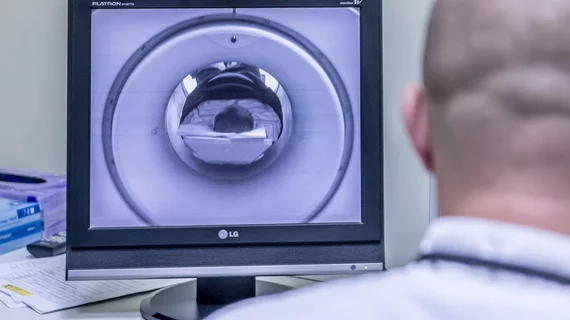Radiology residents need more hands-on MRI education
Dedicating more time to MRI-specific training beyond standard curriculum improves radiology residents’ confidence and understanding of the modality.
This was the case at New York-Presbyterian Hospital / Weill Cornell Medicine, where radiology residents in their third and fourth year of training completed a one-week pilot course for MRI scanning and physics. The immersive course offered additional observation opportunities, hands-on practice, technologist interactions and peer-to-peer teaching. The course was well received by residents who participated, according to surveys completed following its completion.
Philip G. Colucci, MD, from the Hospital For Special Surgery in New York, and colleagues detailed the program and its resultant impact in a paper published on Jan. 14 in Academic Radiology. The team suggested that supplementary education could be beneficial for filling in learning gaps that are common in standard MRI curriculum.
“Teaching this material primarily through didactic lectures remains a standard approach despite known limitations. A focused and more holistic, “hands-on” approach to MRI education may help many residents meet, or exceed, the Accreditation Council for Graduate Medical Education (ACGME) Diagnostic Radiology Milestones,” the team indicated.
Researchers measured the program’s success based on resident feedback and assessments completed before and after the course.
Most residents who participated in the training did not have any prior experience relative to MRI. Following its completion, researchers noted improvements in resident confidence and understanding of MRI in addition to a 22% increase in MRI physics comprehension.
The program was extremely well received by residents, with most of them sharing that they found it to be effective and engaging. Opportunities to train hands-on with MRI equipment and software was the most highly rated aspect of the program.
MRI utilization is expected to witness continued growth in the coming years. Prior studies have highlighted shortcomings in MRI training from residents’ perspectives, but the authors believe that, when feasible, offering additional opportunities to understand the modality would be beneficial for all parties involved.
“Benefits of improved MRI education may lead to better communication, more consistent optimization of MRI image quality, and improved patient care.”
The study abstract is available here.

